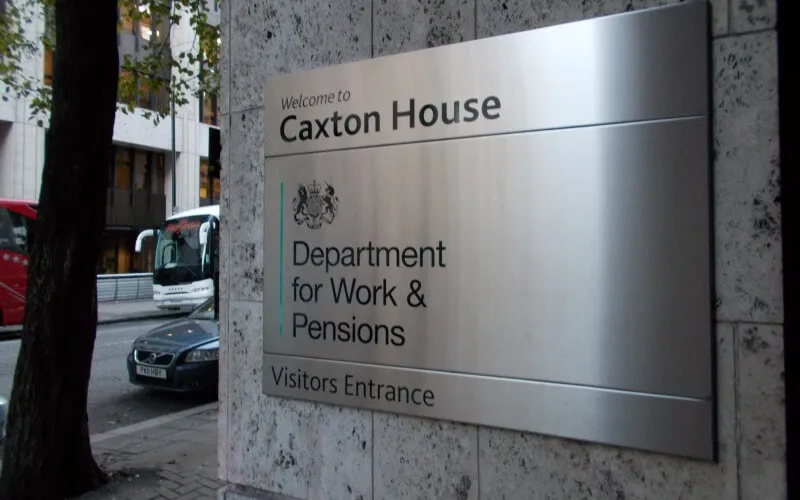Unresolved complaints about the Department for Work and Pensions (DWP) shot up by nearly 70 per cent last year, according to an official report.
The Independent Case Examiner (ICE) Joanna Wallace says in her annual report that her office is continuing to work with DWP “to understand what is driving this increase in unresolved complaints being brought to us”.
She adds: “Aside from the impact of the Women Against State Pension Inequality (WASPI) campaign, my office has not experienced referrals or intake at this level for at least the last decade.”
For a complaint to be examined by ICE it must be about DWP service failure and the claimant must have had a final response to their complaint from DWP within the last six months.
In all, 1,708 complaints against DWP were accepted for examination by ICE in 2021-22, compared with 1,013 the previous year (PDF).
The number of complaints about disability benefits (mostly personal independence payment) that were accepted by ICE in 2021-22 also rose sharply, from 76 to 104, an increase of more than a third (37 per cent).
The proportion of disability benefits complaints partially or totally upheld rose from 63 per cent to 69 per cent from 2020-21 to 2021-22.
And the number of complaints accepted about working-age benefits like universal credit and employment and support allowance rose by 38 per cent, from 315 to 436.
ICE’s annual report was released days after DWP revealed that the average time taken for a DWP complaint even to be allocated to an ICE investigator was now 50 weeks, following the sharp increase in complaints.
Wallace says in her report: “It is already a concern that cases with my office take far longer to be brought into investigation than I am happy with, and a sustained increase in cases coming to us such as we have seen this year, will only make that position worse.”
There is also a sharp increase in complaints compared with the last pre-pandemic year, 2019-20 (PDF).
Compared with 2019-20, the overall number of complaints accepted by ICE rose from 1,132 to 1,708 in 2021-22 (an increase of 51 per cent) and the number of complaints about disability benefits accepted by ICE for examination rose from 71 to 104 (an increase of 46 per cent) in two years.
A DWP spokesperson declined to explain why the department believed the number of complaints had risen so sharply.
But she said in a statement: “We support millions of people each year so they get the help and service to which they are entitled.
“The vast majority of complaints are handled by DWP, with only a small proportion escalating to the Independent Case Examiner which provides an independent avenue for customers.”
One case examined by ICE in 2021-22 related to P, a claimant whose disability living allowance and employment and support allowance (ESA) were both stopped after they failed to attend a personal independence payment assessment.
DWP stopped paying their ESA entirely for nine months, after which ESA was reinstated, but when P failed to attend a work capability assessment their ESA was disallowed again without even telling them that had been done.
ICE found there was no mental health marker on P’s file, even though they had a “severe mental health condition”.
If a mental health marker had been in place, DWP should have arranged a home visit to P before stopping their ESA.
ICE recommended a payment of £800 to P “in recognition of the hardship and injustice of not having their claims dealt with properly”.
The P case suggests DWP has failed to learn the lessons from past deaths linked to its assessment systems, including those of Philippa Day, who died in October 2019; Jodey Whiting, who died in February 2017; and Errol Graham, who died in the spring or early summer of 2018.
Among other cases examined by ICE in 2021-22 was a complaint by M, who was visually-impaired with a brain injury, and had previously made it clear that they were unable to respond to written correspondence.
But DWP closed M’s personal independence payment and employment and support allowance claims when they failed to respond to two forms sent in the post.
DWP also refused to explore possible alternative formats when M rang to complain.
ICE recommended that DWP make a “consolatory payment” of £1,500 to M.
A note from the editor:
Please consider making a voluntary financial contribution to support the work of DNS and allow it to continue producing independent, carefully-researched news stories that focus on the lives and rights of disabled people and their user-led organisations.
Please do not contribute if you cannot afford to do so, and please note that DNS is not a charity. It is run and owned by disabled journalist John Pring and has been from its launch in April 2009.
Thank you for anything you can do to support the work of DNS…

 Disabled MP who quit government over benefit cuts tells DNS: ‘The consequences will be devastating’
Disabled MP who quit government over benefit cuts tells DNS: ‘The consequences will be devastating’ Minister finally admits that working-age benefits spending is stable, despite months of ‘spiralling’ claims
Minister finally admits that working-age benefits spending is stable, despite months of ‘spiralling’ claims Timms says cuts must go ahead, despite being reminded of risk that disabled claimants could die
Timms says cuts must go ahead, despite being reminded of risk that disabled claimants could die